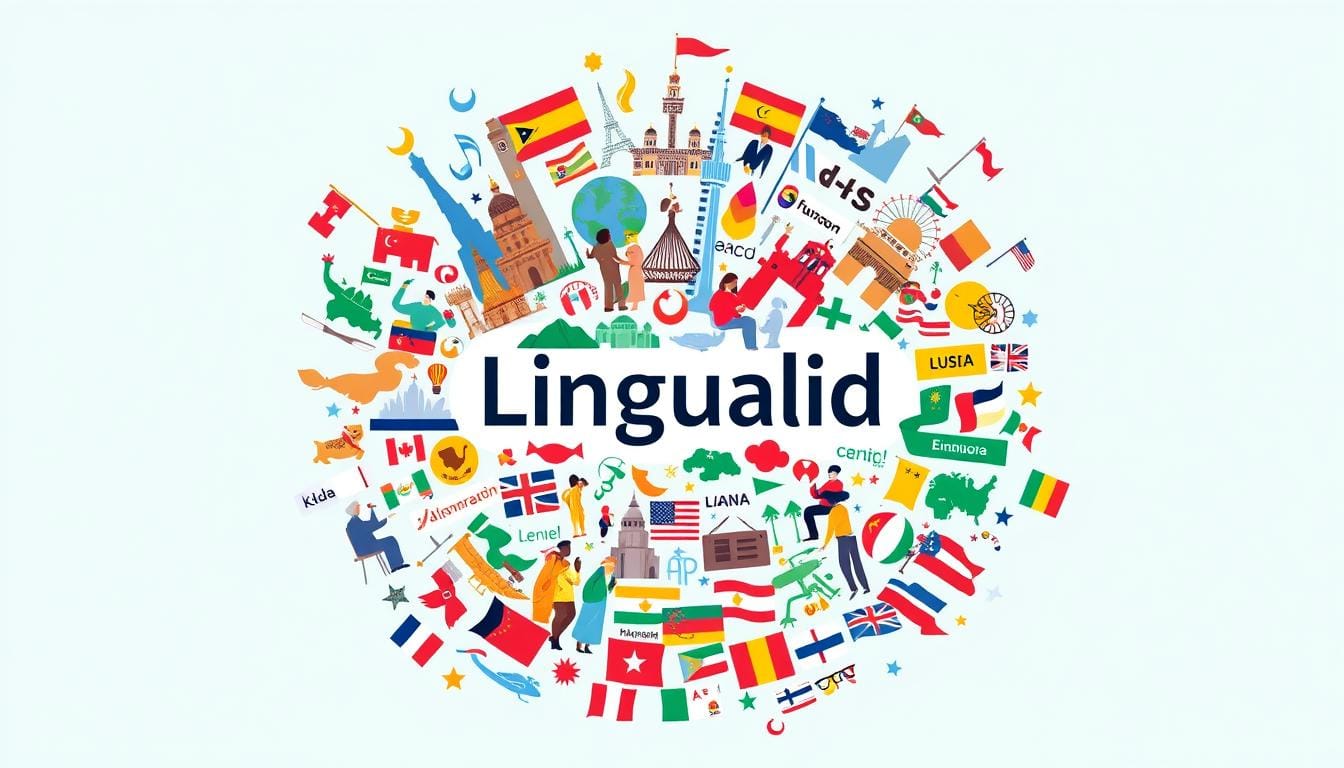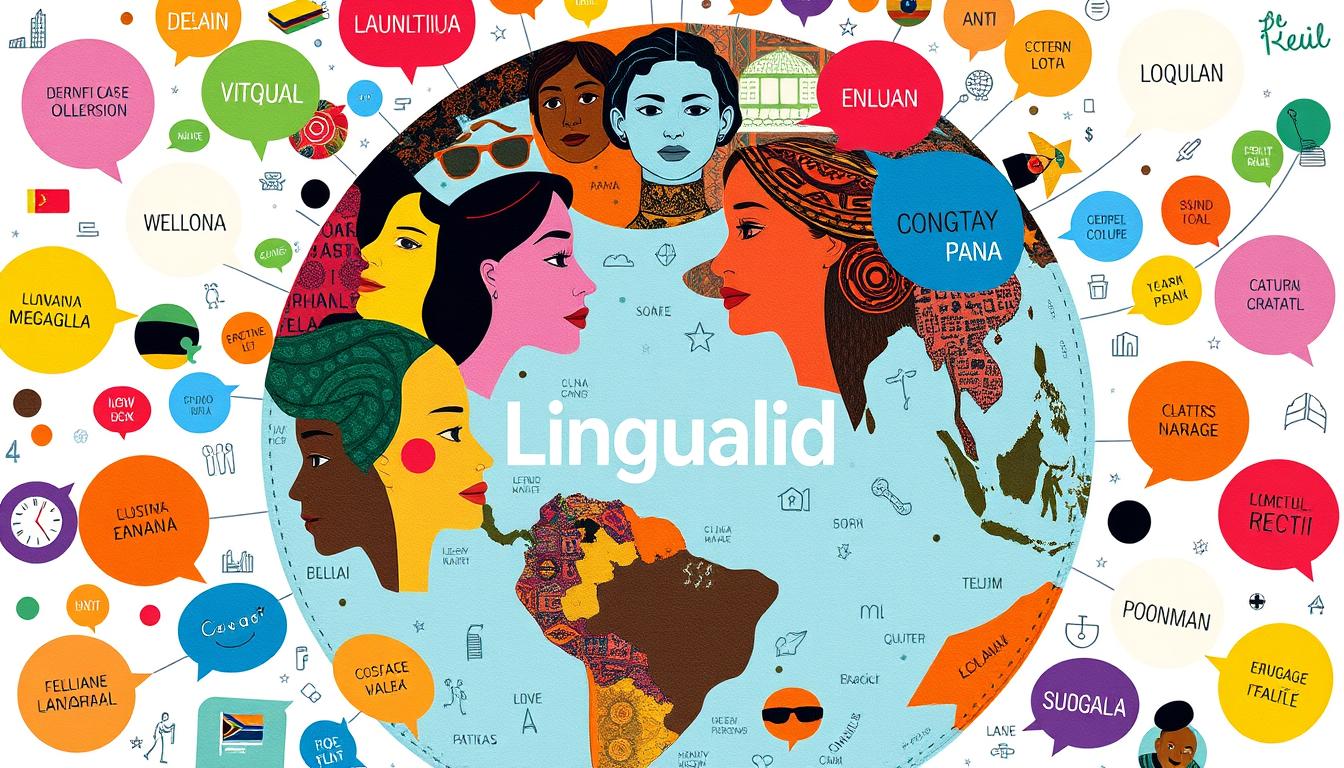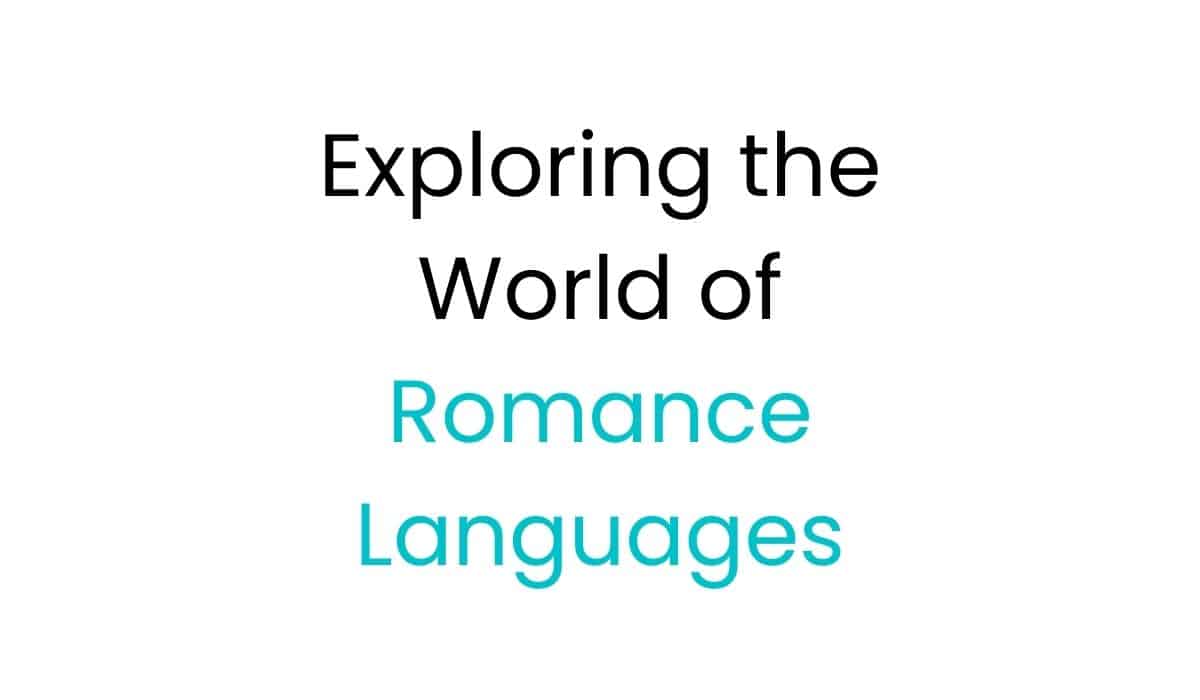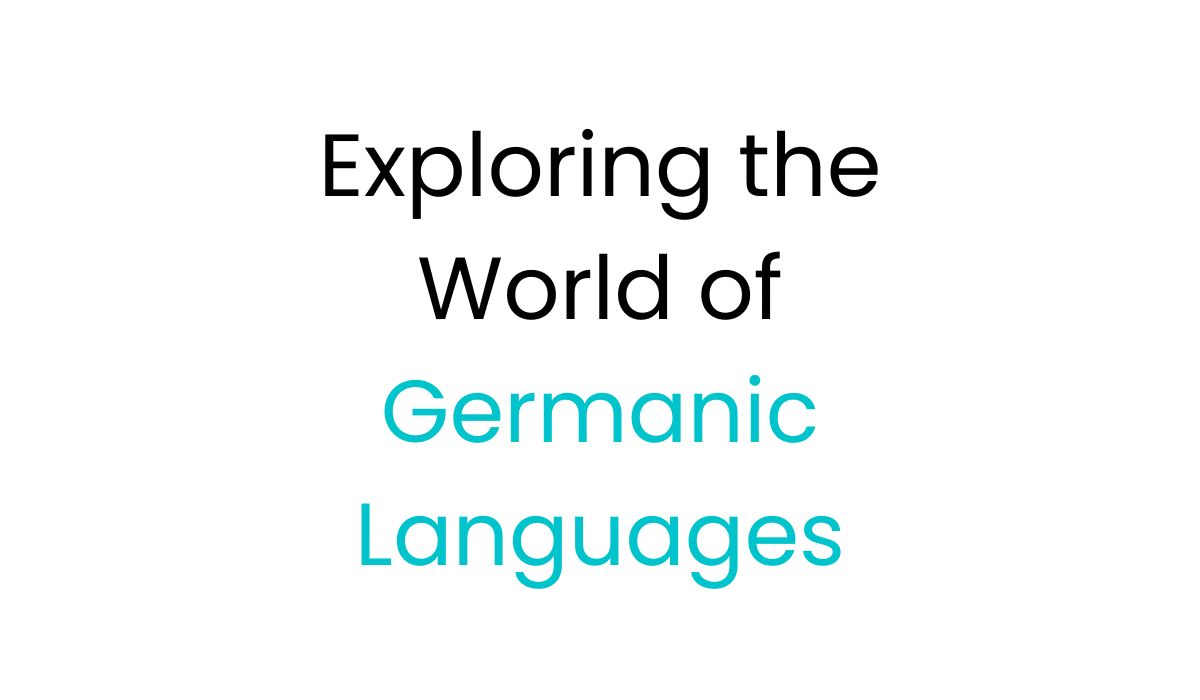When we talk about Multilingualism Benefits, many think learning many languages confuses kids. But, research proves it actually makes them better at learning. People who speak many languages are more open to new things. Their brains stay flexible, helping them learn throughout their lives.
In the United States, one in five kids grow up in homes where English isn’t the main language. This fact comes from the U.S. Census Bureau in 2013. It shows we need to see the good in speaking many languages. Learning different languages boosts our thinking and helps us understand cultures better.

Key Takeaways
- Multilingualism enhances cognitive abilities, executive control, and protects against cognitive decline.
- Learning multiple languages fosters cultural understanding and global perspectives.
- Multilingual individuals demonstrate improved academic performance and standardized test scores.
- Multilingualism offers career advantages in industries requiring language skills.
- Embracing multilingualism can lead to a more unified and peaceful community.
- Key Takeaways
- Defining Multilingualism in Today's World
- Breaking Common Language Learning Myths
- The Global Perspective on Language Acquisition
- Brain Plasticity and Language Learning
- Memory Enhancement and Problem-Solving Skills
- Protection Against Cognitive Decline
- Building International Relationships
- Developing Cross-Cultural Competence
- What are the benefits of multilingualism?
- Is it true that early exposure to multiple languages confuses children?
- How does multilingualism impact cognitive abilities and executive control?
- Can multilingualism help delay the onset of dementia?
- How valuable is multilingualism in the job market?
- How does multilingualism foster cultural understanding and empathy?
- Can multilingualism impact academic achievement?
- How does multilingualism enhance social and communication skills?
- How does multilingualism contribute to identity formation and personal growth?
Understanding the Power of Multiple Languages
In today’s world, speaking multiple languages is very valuable. One in five U.S. children live in homes where a language other than English is spoken. Research has shown that adults can learn new languages and that early exposure to many languages does not confuse children.
Defining Multilingualism in Today’s World
Multilingualism means being able to speak three or more languages well. It’s common all over the world, not just in certain places or cultures. People who speak many languages have better thinking skills, more job chances, and a deeper understanding of different cultures.
Breaking Common Language Learning Myths
Many myths about learning languages are not true. For example, adults can learn new languages, and kids who learn many languages are actually better at picking up new ones. This shows that early exposure to many languages is good, not bad.
The Global Perspective on Language Acquisition
From around the world, the benefits of multilingualism (speaking many languages) are clear. Being able to speak multiple languages opens up new experiences, better job opportunities, and deeper understanding of different cultures. As more people need language specialists and translators, the value of speaking many languages is growing.
“Multilingualism fosters creative thinking by encouraging cross-category insertions in drawings.”
| Statistic | Insight |
|---|---|
| 90% of U.S. employers rely on employees who speak more than one language. | Multilingual individuals are highly sought after in the workforce, as they possess valuable skills that enhance communication and cultural understanding. |
| One in three businesses reports a significant “language skills gap.” | The demand for multilingual talent is on the rise, creating numerous career opportunities for individuals who have mastered multiple languages. |
| Bilingualism and multilingualism are very common, with people growing up speaking two or more languages. | Multilingualism is a global phenomenon, with a significant portion of the world’s population speaking multiple languages from a young age. |
Multilingualism Benefits: Cognitive Advantages Revealed
Multilingualism is more than just speaking many languages. It boosts our mental skills and problem-solving abilities. Studies show that those who speak multiple languages have better executive control. They can ignore distractions and switch tasks easily.
Managing many languages improves our thinking. Bilingual and multilingual people often do better on tasks that need focus and control. This is true for both young kids and older adults, showing multilingualism’s lasting benefits.
Being multilingual also improves brain health. Research links higher language skills to more brain activity in areas linked to attention and control. This shows how learning languages can make our brains work better.
Learning more languages doesn’t stop at two or three. Bilingual adults pick up a third language faster than monolinguals learn a second. This means the more languages we learn, the more flexible and sharp our brains get.
| Multilingual Advantage | Key Findings |
|---|---|
| Cognitive Flexibility | Bilingual individuals often perform better on tasks that require conflict management and inhibitory control. |
| Brain Structure and Function | Higher proficiency in a second language correlates with increased gray matter volume in the brain regions associated with cognitive skills. |
| Third Language Acquisition | Bilingual adults learn a third language more easily than monolingual adults learn a second language. |
| Problem-Solving and Mental Agility | Multilingual individuals demonstrate enhanced memory, problem-solving abilities, and cognitive flexibility. |
The benefits of multilingualism are clear. Learning multiple languages opens up a world of mental sharpness and problem-solving skills. It can greatly benefit us throughout our lives.
Enhanced Brain Function and Mental Agility
Learning multiple languages is a lifelong journey that boosts your brain. It makes your brain more flexible and adaptable. This is known as brain plasticity.
When you learn new languages, you improve your memory and problem-solving skills. You become mentally sharper and more agile.
Brain Plasticity and Language Learning
Studies show that speaking multiple languages makes your brain more flexible. Bilingual people are better at solving problems and thinking creatively. They outperform those who speak only one language.
This is because learning languages strengthens your brain’s ability to manage information. It helps you process information more efficiently.
Memory Enhancement and Problem-Solving Skills
Being multilingual also boosts your memory and problem-solving skills. Bilingual people have better working memory. This means they can multitask and manage their thoughts better.
Practicing switching between languages daily sharpens your mind. It improves your decision-making and problem-solving abilities in all areas of life.
Protection Against Cognitive Decline
One of the benefits of multilingualism is that it also protects your brain as you age. Research suggests that bilingual people may delay dementia and Alzheimer’s by several years. This is compared to those who speak only one language.
The mental exercise of learning and using multiple languages keeps your brain healthy. It helps protect against cognitive decline in healthy aging. It may even help those with dementia or recovering from a stroke.
“Learning a second language challenges your brain, strengthening linguistic skills, making you smarter and more flexible at problem-solving.”
| Characteristic | Monolinguals | Multilinguals |
|---|---|---|
| Healthy Individuals | 86.5% | 94.3% |
| Mild Cognitive Impairment (MCI) | 13.5% | 5.7% |
The data shows that speaking multiple languages protects your brain. Multilingual people are less likely to develop mild cognitive impairment. This is a condition that can lead to dementia.
Career Advancement and Professional Growth
In today’s world, speaking multiple languages is a big plus in the job market. Employers see the value in having team members who can communicate in different languages. A study by Rosetta Stone shows that knowing a second language can boost your job prospects. It can lead to more interviews, job offers, promotions, and even higher salaries.
The job market is growing, with around 3 million new jobs expected, as reported by NASDAQ. Multilingual people are well-positioned to grab these opportunities. While English is common online, languages like Mandarin, Arabic, and Spanish are also in demand. This is true in fields like marketing, transportation, banking, and technology.
Bilingual workers often earn more than those who speak only one language. They can earn 5% to 20% more per hour. Also, bilingual kids are better at solving problems. This shows that knowing multiple languages can improve your thinking and creativity.
| Language | Number of Speakers Worldwide |
|---|---|
| English | 1.50 billion |
| Mandarin Chinese | 1.12 billion |
| French | 280 million |
| Spanish | 460 million |
In conclusion, speaking multiple languages is very valuable in today’s job market. It opens doors to career opportunities, professional growth, and higher earnings. As the world changes, knowing multiple languages will become even more important. It’s a skill that will help individuals succeed in a globalized world.

Cultural Understanding and Global Connectivity
Multilingualism is a powerful tool that fosters deeper cultural awareness and empathy. By learning multiple languages, individuals unlock the ability to connect more authentically with people from diverse backgrounds. This breaks down cultural barriers. Language learning exposes learners to different traditions, arts, customs, and social institutions. It enhances their cross-cultural competence.
In university settings, the interaction between monolingual and multilingual students creates an enriching atmosphere. This promotes personal growth and global connections. Multilingual individuals often show higher levels of empathy and tolerance towards other cultures. They gain a deeper understanding of the nuances and complexities of language and communication.
Building International Relationships
Mastering multiple languages enables individuals to build stronger and more meaningful relationships across international borders. The ability to converse fluently in various tongues allows for more authentic and engaging interactions. This fosters trust and facilitates the exchange of ideas and cultural perspectives.
Developing Cross-Cultural Competence
As individuals immerse themselves in the study of new languages, they also gain a profound appreciation for the diversity of human expression and cultural traditions. This exposure to different ways of thinking and communicating enhances their cross-cultural competence. It enables them to navigate diverse social and professional environments with greater ease and sensitivity.
“Multilingualism opens doors to new worlds, cultivating empathy, understanding, and a deeper appreciation for the richness of human experience.”
Academic Performance and Educational Benefits
Multilingualism is a powerful tool that can greatly improve academic performance. It offers many educational benefits for students. Studies show that kids who speak multiple languages do better in school. They have better memory, reading skills, and test scores.
In California, where 60% of young children have parents who speak a language other than English, multilingualism shines. Multilingual kids make up 40% of public school students. The state has given $10 million in 2021 to support more multilingual programs in schools.
Bilingual households in California can earn $30 billion more each year. This is $15,519 more for each household. Also, research shows that non-English speaking households are 160% more likely to live in poverty. This highlights the need to improve literacy and education for these students.
Multilingual education can change lives. It gives students from different backgrounds a chance to succeed in school and beyond.
| Metric | Value |
|---|---|
| Children under 5 with at least one non-English speaking parent in California | 60% |
| Multilingual children in California’s public schools | 40% |
| Funding allocated by California to expand multilingual programs in 2021 | $10 million |
| Increase in job postings in California requiring bilingual skills (2010-2023) | 4-fold |
| Potential collective earnings boost for bilingual households in California | $30 billion |
| Likelihood of non-English speaking households living below poverty level compared to English-only households | 160% more |
The benefits of multilingualism are huge and wide-reaching. By supporting our students’ linguistic diversity, we open doors to success. This prepares them for a world full of opportunities.

Social and Communication Advantages
Knowing multiple languages brings big social and communication benefits. People who speak many languages often have better interpersonal skills. They can easily move between different cultures and ways of talking.
This skill, called code-switching, shows a smart way of thinking. It helps them have deeper and more flexible talks with others.
Also, speaking many languages helps grow emotional intelligence. By understanding different cultures and ways of talking, they learn to see things from other people’s viewpoints. This makes them better at making friends and understanding others’ feelings.
| Benefit | Description |
|---|---|
| Interpersonal Skills | Multilingual individuals exhibit enhanced social adaptability and communication finesse, seamlessly navigating diverse cultural contexts. |
| Code-Switching Abilities | The capacity to fluidly transition between languages reflects a sophisticated cognitive strategy, enabling more nuanced and versatile interactions. |
| Emotional Intelligence | Multilingualism fosters a deeper understanding of different perspectives and social cues, allowing for more empathetic and meaningful connections. |
By working on these skills, multilingual people can make stronger bonds, work better together, and do well in a world that’s getting more global.
Identity Formation and Personal Growth
Learning multiple languages deeply affects how we see ourselves and grow. It opens our eyes to different cultures and ways of thinking. This broadens our understanding of the world.
Mastering a new language pushes us out of our comfort zones. It builds our resilience and self-confidence. As we learn, we become more confident in speaking and understanding new languages.
Exploring art, literature, and media in their original languages adds richness to our cultural experiences. It helps us understand our place in the world better. We see our identity in a new light.
“Multilingualism is not just about speaking different languages – it’s about embracing the diversity of the world and developing a more complete understanding of oneself.”
Being able to switch between languages makes us more adaptable. It helps us move smoothly through different social and work settings. This adaptability grows our sense of identity and makes it more inclusive.
In today’s connected world, speaking multiple languages is key. It opens doors to personal growth, cultural exchange, and global connections. By embracing language diversity, we unlock new paths for identity formation, personal growth, and cultural diversity.

Conclusion
Learning multiple languages opens up a world of benefits. It boosts your brain, career, and personal life. Mastering different languages is truly amazing.
In today’s global world, speaking many languages is key. It helps you succeed in your career and be a global citizen. Being multilingual makes life richer and brings people closer together.
Being multilingual sharpens your mind. It improves problem-solving, memory, and keeps your brain healthy. It also helps you understand different cultures, making work and personal life more rewarding.
FAQ
What are the benefits of multilingualism?
Is it true that early exposure to multiple languages confuses children?
How does multilingualism impact cognitive abilities and executive control?
Can multilingualism help delay the onset of dementia?
How valuable is multilingualism in the job market?
How does multilingualism foster cultural understanding and empathy?
Can multilingualism impact academic achievement?
How does multilingualism enhance social and communication skills?
How does multilingualism contribute to identity formation and personal growth?
Oualid Cheddadi is the founder of Lingualid, a platform that inspires independent language learners worldwide, regardless of the language they are learning. The name “Lingualid” is derived from the Portuguese word for “language,” “língua,” and the last three letters of Oualid’s name, “Lid.”



